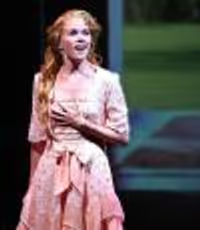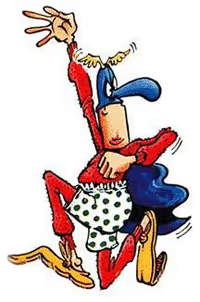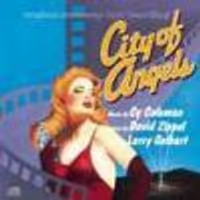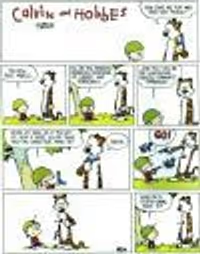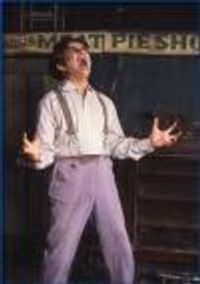Kopit and Yeston's PHANTOM
Yankeefan007
Broadway Legend Joined: 3/20/04
#1Kopit and Yeston's PHANTOM
Posted: 11/15/10 at 5:18pmWhat are some thoughts on this one, commonly referred to as "the other Phantom," even though, essentially, it came first? Heard a bit of the score recently at a colleague's house and wasn't particularly impressed. What's the consensus?
#2Kopit and Yeston's PHANTOM
Posted: 11/15/10 at 5:25pm
Well they claim it was first, but who knows... nothing was published til what '91?
"Home" is my absolute favourite Yeston song, and one of my all time favourite musical theatre songs. Robert Cuccioli performed this role many many times over the years (The Phantom), and sings it with Laura Benanti on the Maury Yeston Songbook Album!
The show itself is OK, but I definitely prefer Lloyd Webbers. To me it seems once Lloyd Webber's popped up, they tried to distance themselves from his plot/ways, including the mask even.
I think there was a big thread on this a while back BTW!
AEA AGMA SM
Broadway Legend Joined: 8/13/09
#2Kopit and Yeston's PHANTOM
Posted: 11/15/10 at 5:45pmPersonally, I like a few of the songs, but find other sections to be completely extraneous (including the ending, I don't really care for the history they created for the Phantom and its ultimate resolution). I find in general that it also lacks some of the lushness you would expect to hear from the score. A good amount of it feels more Gilbert & Sullivan to me, whereas I would much rather hear the larger sound you would associate with grand opera that Lloyd Webber attempted.
#3Kopit and Yeston's PHANTOM
Posted: 11/15/10 at 5:51pmI saw it several times and preferred it to Lloyd Webber's piece. The staging and costumes weren't as opulent but the story was more cohesive and coherent. Yeston wrote some lovely tunes for the score including one thrilling number detailing the Phantom's childhood that was reminiscent of The Bells of St. Sebastian from Nine. It was the most sumptuous production number of the show, yet conspicuously absent from the cast recording. Richard White and Glory Crampton were stunning on stage.
#4Kopit and Yeston's PHANTOM
Posted: 11/15/10 at 6:37pm
It's been a long time since I've seen it, but I seem to remember it also being closer to the original Leroux book than Webber's version.
Some of it is very pretty - Home, You Are Music, You Are My Own - some really gorgeous stuff there!
AEA AGMA SM
Broadway Legend Joined: 8/13/09
#5Kopit and Yeston's PHANTOM
Posted: 11/15/10 at 7:10pm
*Spoiler Alert*
Kopit and Yeston took just as many liberties with the book as Webber, Hart, and Stilgoe did. Some areas where the Kopit's libretto veers from the novel:
1. Christine starts as a street peddler selling the new "popular" song on the street. The Viscount de Chagny (who has been given the name of Phillip, Raoul's brother in the novel) "discovers" her there and offers to connect her with the Paris Opera. All of their past, which I think factored pretty heavily into Raoul's motivations in both the novel and Webber's adaptation, has been completely removed. They start out as complete strangers.
2. Carlotta is also new to the Paris Opera, having bought it in order to use her new position as owner/manager to install herself as its resident prima donna. Carlotta is generally portrayed (at least in the two productions that I have seen) as fairly untalented and grossly unsuited to be the leading lady. In the novel, as I remember, her true talent is not doubted, the Phantom just wants to install Christine above her because of his obsession.
3. The Phantom's initial motivation in coaching Christine seems to be that she resembles his deceased mother.
4. Christine becomes a success after beating Carlotta in a singing competition in the local bistro (I think one of the story liberties where I actually did say "really?" to myself)
5. *Big Spoiler* It is revealed that the Phantom's father has been around the whole time in the form of the former manager who lost the opera house to Carlotta. This is eventually revealed to the Phantom as he is dying at the end of the show in a rather sappy and, quite frankly, corny sequence of song and dialogue.
I think in general the script for this version attempted to really beef up the Phantom's back story, but it did so by removing a lot of the mystery that surrounds the character. And, as I stated, the show definitely sounds much more operetta than it does grand opera. Lloyd Webber definitely ran much further with the "gothic love story" slant than Yeston and Kopit did.
I think Leroux put enough history for the Phantom into the novel that there was plenty of material to work with if they had wanted to explore that angle, without resorting to the "father has been there all along and is now willing to accept his son as he lays dying on the floor" resolution to his story that they created out of thin air.
MusicalMo
Stand-by Joined: 5/22/06
#6Kopit and Yeston's PHANTOM
Posted: 11/15/10 at 7:24pmI really like the Yeston/Kopit 'Phantom'. It, like any show, has it issues. But I wonder (now that the ALW 'Phantom of the Opera' has wrapped up its almost 20 year tour) if a tour of Yeston/Kopit 'Phantom' would work on the road. I think as long as it is marketed well, and that presenters clarify that it isn't the ALW version, it might do well.
#7Kopit and Yeston's PHANTOM
Posted: 11/15/10 at 9:12pm"Home" is definitely the best song in the show. But overall, the lyrics kinda blow.
SporkGoddess
Broadway Legend Joined: 7/27/05
#8Kopit and Yeston's PHANTOM
Posted: 11/15/10 at 9:33pmIn the novel, Carlotta is portrayed as mediocre but popular. She isn't bad, but she isn't really good either.
ThankstoPhantom
Broadway Legend Joined: 10/13/05
#9Kopit and Yeston's PHANTOM
Posted: 11/16/10 at 10:29am
I would actually argue that Webber's version is a rather faithful adaptation to the novel, with the a very similar plot structure, it just focuses more on the romance instead of the mystery. There are obvious shifts in character development, and added and cut characters, but the crux of the show actually follows the Leroux novel very well...it even adapts the ridiculous choice she is given at the end, albeit a tad different.
The Yetson/Kopit one is interesting, very exploratory within a very different story.
#10Kopit and Yeston's PHANTOM
Posted: 11/16/10 at 11:54amI don't believe this dreary uninspired mediocrity of a show can ever resurface. ALW's Phantom is SO much better.
Dollypop
Broadway Legend Joined: 5/15/03
#11Kopit and Yeston's PHANTOM
Posted: 11/16/10 at 3:14pm
I have to disagree. I saw a fine summer production of the Kopit/Yeston PHANTOM and felt it was superior to the ALW version by far. The book is far more intelligent and doesn't depend on the audience knowing the original novel before the show begins. The ALW version has so many potholes in the script, it's hard to follow. I mean, HOW did the Phantom become deformed? WHY do people have to shield their eyes as they descend into the bowels of the Paris Opera House? Who lit all those candles on the underground lake? (Incidentally, I just returned from Paris and took a tour of the opera house while there. There is, indeed, an underground lake but it's purpose is as a cistern to put out fires. When the opera house was built, everything was illuminated by either gas or candles and the architect included this water supply as a safety precaution).
Additionally, Yeston wrote some lovely and effective music for this version.
#12Kopit and Yeston's PHANTOM
Posted: 11/16/10 at 3:44pm
I saw what probably were the same productions as Matt.
Some of the music is indeed lovely but, as Zepka pointed out, many of the lyrics are indeed painful. Ones that jump to mind:
"From every toilet bowl to every leading role this place is mine"
"Where every English horn makes me feel glad I'm born"
And the fugue where they just keep saying "the opera's been invaded by a phantom/ghost" for five minutes.
AEA AGMA SM
Broadway Legend Joined: 8/13/09
#13Kopit and Yeston's PHANTOM
Posted: 11/16/10 at 3:53pm
And don't forget some of the "jokes/puns" (if you can call them that).
Carlotta: (upon discovering Buquet's body) My costume man!
Cholet: She sent him down below!
Inspector: Well someone has sent him back up!
I don't need to laugh during the story of the Phantom of the Opera (not that these types of jokes did make me laugh, but I don't need the attempt to even be there).
#14Kopit and Yeston's PHANTOM
Posted: 11/16/10 at 4:12pm
"The book is far more intelligent and doesn't depend on the audience knowing the original novel before the show begins. The ALW version has so many potholes in the script, it's hard to follow. I mean, HOW did the Phantom become deformed? WHY do people have to shield their eyes as they descend into the bowels of the Paris Opera House? Who lit all those candles on the underground lake?"
Honestly, do we care how the Phantom was deformed? Does anyone really worry about who lit the candles? ALW's Phantom carries all before it - logic included - because the central relationship is fascinating and the music soars to heights that Yeston's trite operetta-ish tunes can never aspire to.
#15Kopit and Yeston's PHANTOM
Posted: 11/16/10 at 4:21pmLOL, AEA, yes, and the delivery of those lines on the cast recording does not help.
AEA AGMA SM
Broadway Legend Joined: 8/13/09
#16Kopit and Yeston's PHANTOM
Posted: 11/16/10 at 4:25pm
"This face, which earned, a mother's fear and loathing.
A mask my first unfeeling scrap of clothing."
He was born that way, no further explanation is necessary. And I don't recall there being much further explanation in the Kopit/Yeston version either. A lot of extra stuff they made up about his childhood (which had nothing to do with the few details Leroux gave in the original novel), but nothing other than "I was born deformed."
I'll also say I think Lloyd Webber defined the central love triangle a lot better. For those who think Raoul is a weak character go look at Phillipe (and his "Who Could Ever Have Dreamed Up You" which sounds like a soft-shoe number that Fred & Ginger rejected from one of their movies) and Raoul suddenly seems miles better.
esparza 333
Broadway Star Joined: 7/24/07
#17Kopit and Yeston's PHANTOM
Posted: 11/16/10 at 4:41pmI made my musical theatre debut in this in Danbury in 2005. I played the Young Phantom and agree that the sequence about his life is haunting and beautiful. I feel that piece is a very different interpretation of the novel and while Phantom of the Opera is more haunting and sweeping this one has a more focused libretto. The score while never achieving the heights that Music of the Night or All Ask of You reach, is a very nice score with some very memorable songs (Melodie De Paris, Home, My Mother Bore Me/Christine. I wouldn't compare them as they both do different things and have many differences (Meg and Madame Giry are not their in this version. I do recommend people to check out the recording with Richard White and Glory Crampton. Don't go in expecting something as lush as Lloyd Webber's version and you just may enjoy some of it's wonderful melodies.
sparrman
Broadway Star Joined: 2/21/07
#18Kopit and Yeston's PHANTOM
Posted: 11/16/10 at 7:09pm
I've seen the Lloyd Webber version several times and don't know how it can even be considered "theatre". It is dramatically inert. Lloyd Webber wrote about 5 pretty tunes (and stole bits from "La fanciulla del West") and tried to stretch those tunes over the too-long running time of the show. To really compare it fairly, you need to divorce it from its admittedly-beautiful design elements (which are the only way it has ever been performed) and look at it as a piece of theatre. I feel it fails dismally.
The Yeston/Kopit version was written by an actual *playwright*, Arthur Kopit. Not that it is without flaws, but particularly in the second act, it is quite compelling and moving. "Who cares about the Phantom's backstory?" *I* do, if he is as complex and fascinating a character as Kopit makes him.
Agreed, some of Yeston's lyrics are painful...but what about the lyrics in the other version? (Who wrote them, anyway? Don't remember.) And Yeston's music is mostly glorious.
To each his own, to be sure, and clearly the Lloyd Webber version is filling some sort of void. But I think the Yeston/Kopit is vastly more satisfying.
Updated On: 11/16/10 at 07:09 PM
#19Kopit and Yeston's PHANTOM
Posted: 11/16/10 at 8:31pmWhy is the character of the Persian left out of both versions? This character is quite prominent in the denouement of the story in the novel.
#20Kopit and Yeston's PHANTOM
Posted: 11/16/10 at 8:42pm
As one can tell by this thread already, the Yeston/Kopit Phantom has many fans--most of whom will say that it is far better than the more popular Andrew Lloyd Webber version.
I may be biased because seeing the ALW version twenty years ago as a child is what made the theater bug bite, and I will always love it, but having spent a fair amount of time with the Yeston/Kopit original cast recording, and having seen it once onstage, I have to argue that it is inferior to the ALW version on pretty much all counts. The Yeston/Kopit version is a much more traditional book musical and less of a spectacle, and certainly has more character development for The Phantom, which I understand some will appreciate. But to be honest, ALW and his bookwriters/lyricists gave us all the character development we need for a figure that is supposed to be scary and mysterious. Yeston and Kopit have The Phantom standing around singing about how sad he is from the very beginning of the show. They try to make him more of a victim than an anti-hero or sympathetic villain, but they do so with a great deal of corniness. And the whole thing with the father is just musical theater at its worst.
I prefer my Phantom to be cool and scary, not a whiny little b*tch.
sparrman
Broadway Star Joined: 2/21/07
#21Kopit and Yeston's PHANTOM
Posted: 11/17/10 at 8:45amWell argued, Mr. Baritone, but I do want to note that I think the Yeston/Kopit recording is a fairly poor document of the show, despite featuring most of the leads from its Houston TUTS premiere. The chief problem is Richard White, whose singing is overwrought, and whose diction is abominable. (Though yes, it might be argued that with some of Yeston's lyrics, the latter is a "plus".)
Videos


